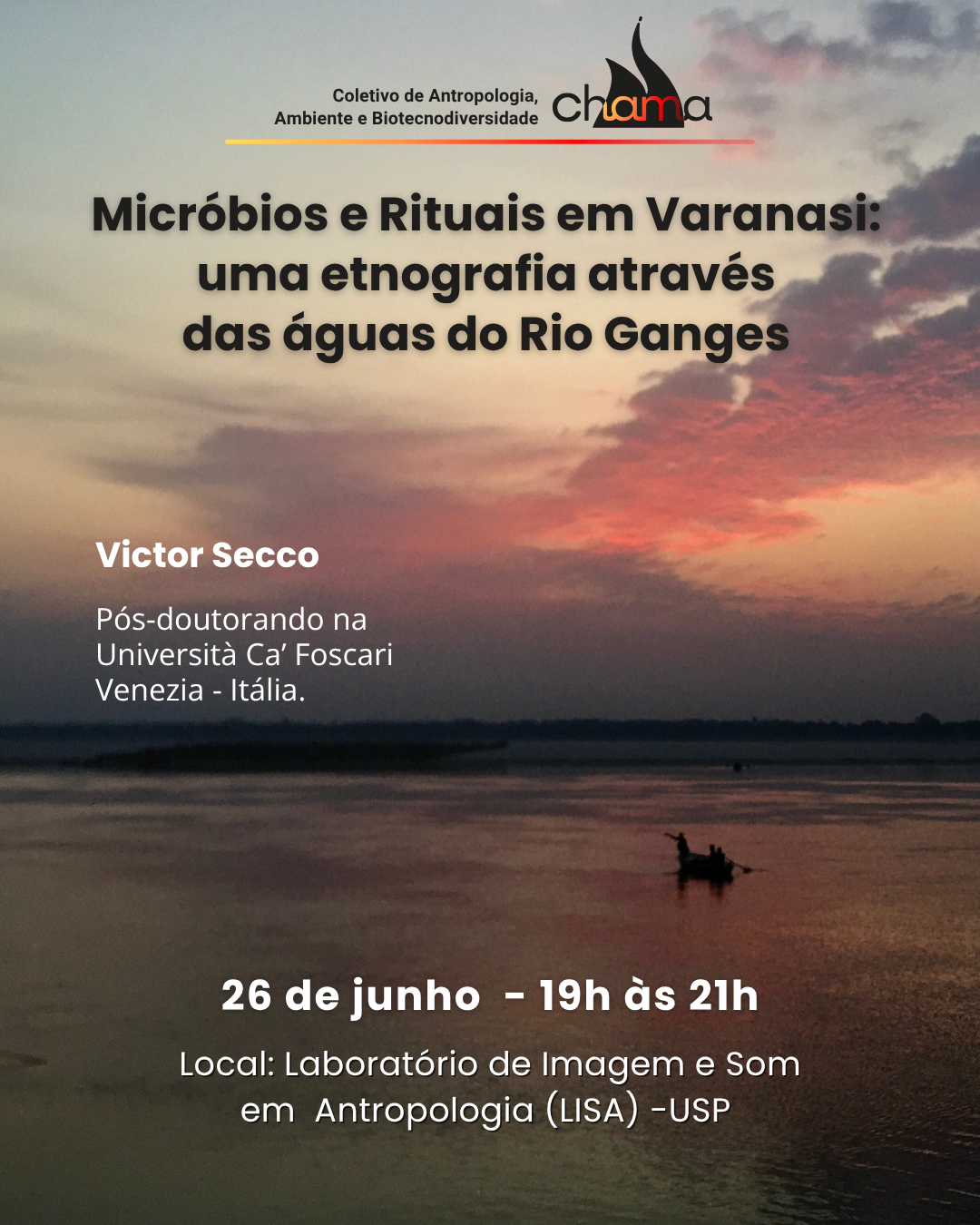Victor Secco will present central themes of his doctoral research, defended at the University of Manchester (England), which investigates the intersections between science, religion and multispecies interactions, based on an ethnography conducted with Hindu priests and microbiologists in the city of Varanasi, in northern India. The Ganges River, which runs through the city, is simultaneously revered for its sacred waters and known for its high levels of pollution. While millions of people depend on these waters for religious rituals and daily activities, the river receives huge volumes of sewage and other pollutants every day. Microbiological research reveals the presence of several bacteria, including antibiotic-resistant strains, but also identifies therapeutic potential, such as the use of bacteriophages for treatments.
From this context, the ethnography conducted by Victor explores how the waters of the Ganges are conceived, manipulated and experienced, articulating relationships with microbes and deities. His analysis sheds light on the material and symbolic qualities of water, especially in light of the challenges posed by the COVID-19 pandemic. On the occasion, Victor will also give a brief presentation of his postdoctoral research underway at Università Ca’ Foscari Venezia, which investigates the relationships between humans and microorganisms in the emerging field of so-called planetary biology. The lecture is an outreach activity of the Anthropology, Environment and Biotechnodiversity Collective (CHAMA) and is part of the program of the discipline “Anthropology of Microorganisms”, which is being taught by postdoctoral researcher Leonardo Dupin in the Department of Anthropology at USP.


